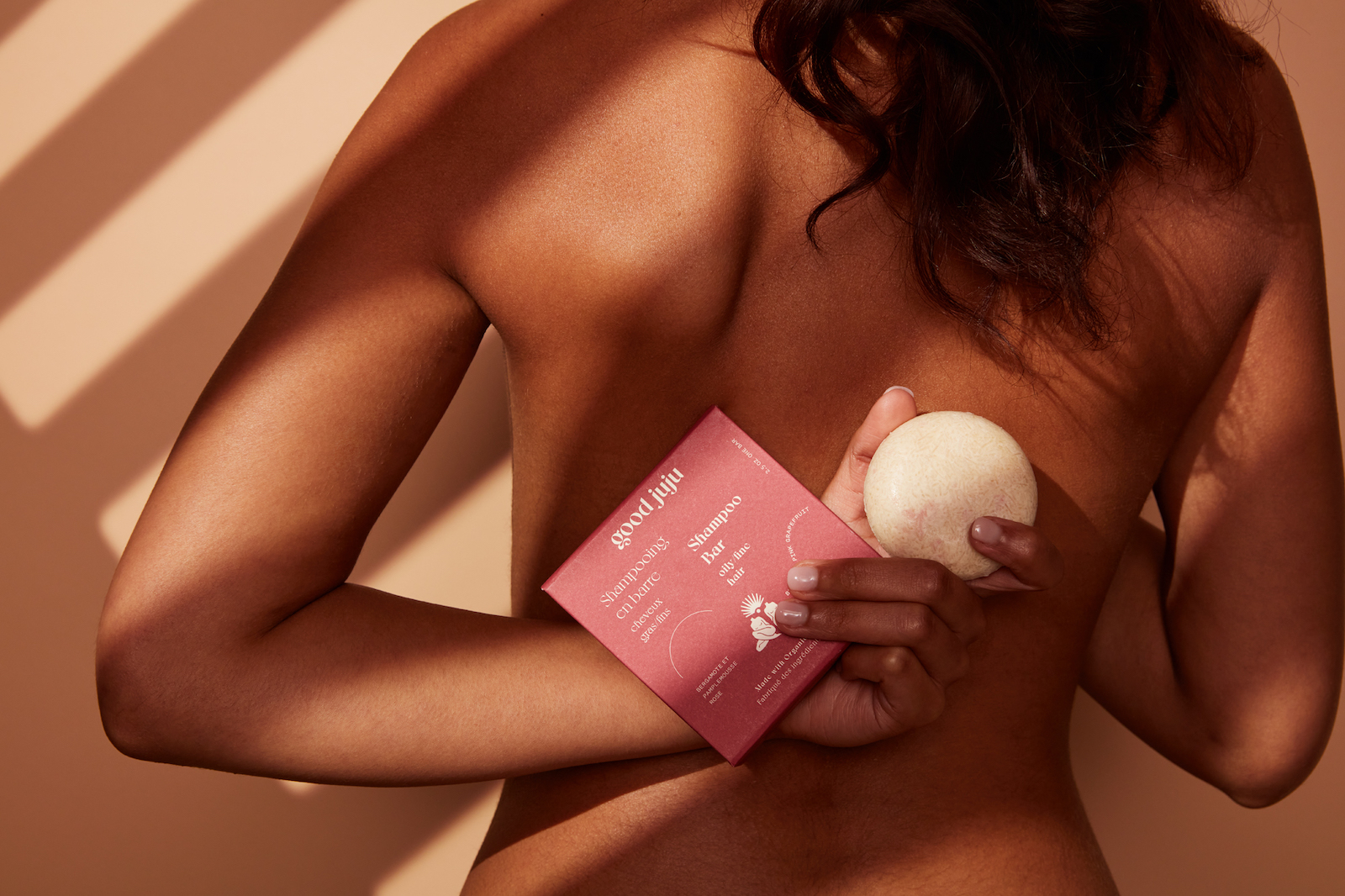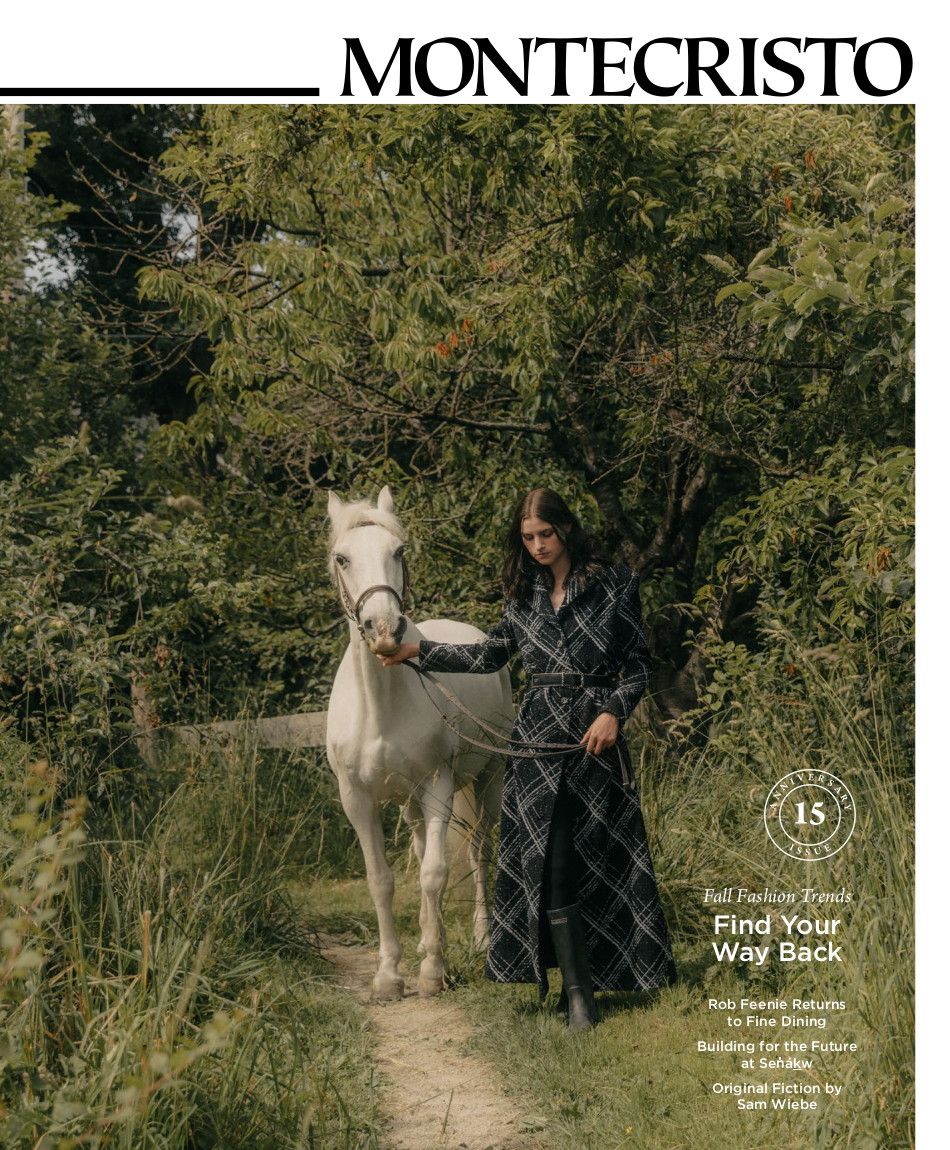One day, Lisa Karandat called her friend Alexa Monahan to talk about shampoo bars. “I know they’re better for the planet. They’re plastic-free. But I just don’t really like them.’” Monahan, too, had tried to achieve great hair with less waste but was similarly underwhelmed.
“Okay, here we go,” Monohan said. “This is our idea.”
It was an unconventional start. Months earlier, the pair had decided to go into business together, with the caveat that whatever they did be sustainable. Shampoo bars were a chance to reinvent the wheel—if the wheel had first been a triangle. Taking an existing idea and making it better while also protecting the planet—this is the foundation their home and beauty brand Good Juju is built on.
That and a good video-call platform. “We spend a lot of time on Teams,” Monahan says. She is chatting with me by video from her home base in Vancouver, her hair pulled back into a polished ponytail. Karandat, joining from her home outside of Toronto, declares herself not “video ready,” but her long, thick hair clearly is.
Many entrepreneurs spend years looking for that one great breakthrough idea. But Karandat and Monohan took a different route—starting with a mediocre idea and making it good through a thoughtful, conscientious, and holistic approach to business. The transformation came down to simple addition and subtraction. The addition of organic plant-based ingredients; the subtraction of a few unwelcome guests, including parabens, SLS, and synthetic fragrances and dyes.
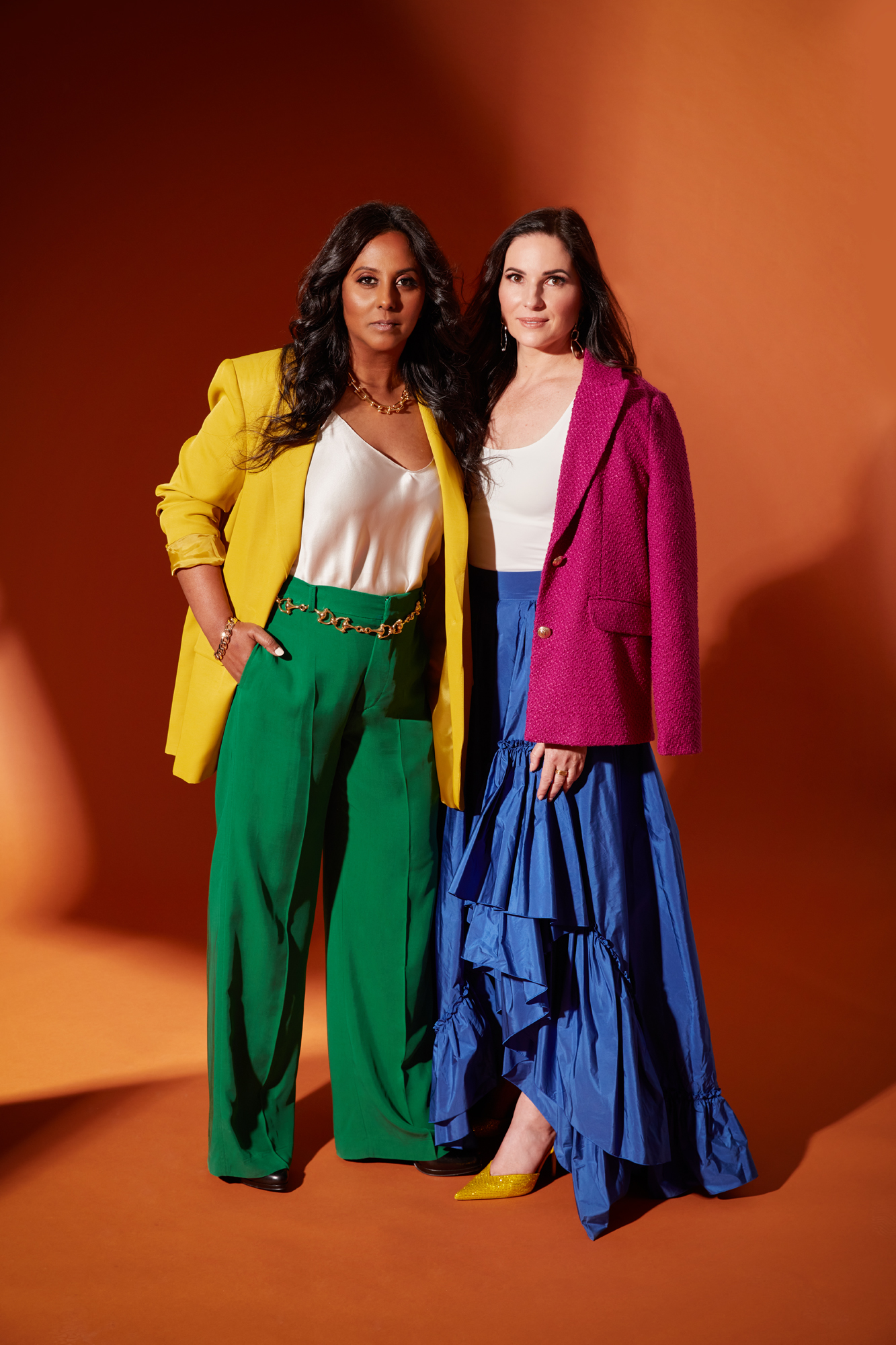
Lisa Karandat and Alexa Monahan.
“From working in the health-food industry for so many years, I really got a sense from consumers that when people hear the word ‘natural’ or ‘sustainable,’ they think they have to give something up,” Monahan says. “So when we were formulating our products, we took a very long time to make sure that they outperform products that people are used to in their liquid format.”
Conceived in 2019 and launched in 2020, Good Juju arrived at the height of the global pandemic. From there, the product line grew to include body bars and eventually laundry strips and complementary accessories such as wool dryer balls and handmade soap dishes that seem inspired by Brutalist architecture.
The pair met while employed in the natural health industry: Karandat worked in marketing for a supplement company in Ontario, and Monahan for her family’s B.C.-based natural grocery chain. Despite the physical distance between them, the two connected over shared values and ideas about the environment and climate change.
Clearing the “natural” hurdle—the idea that natural products are made from moonbeams and good vibes and thus don’t work well—meant using ingredients with proven results. “Making sure that the ingredients that we had, had really solid research behind them was really important to us,” Karandat says. Nine months and countless formulas later, they finally had the results they were looking for.
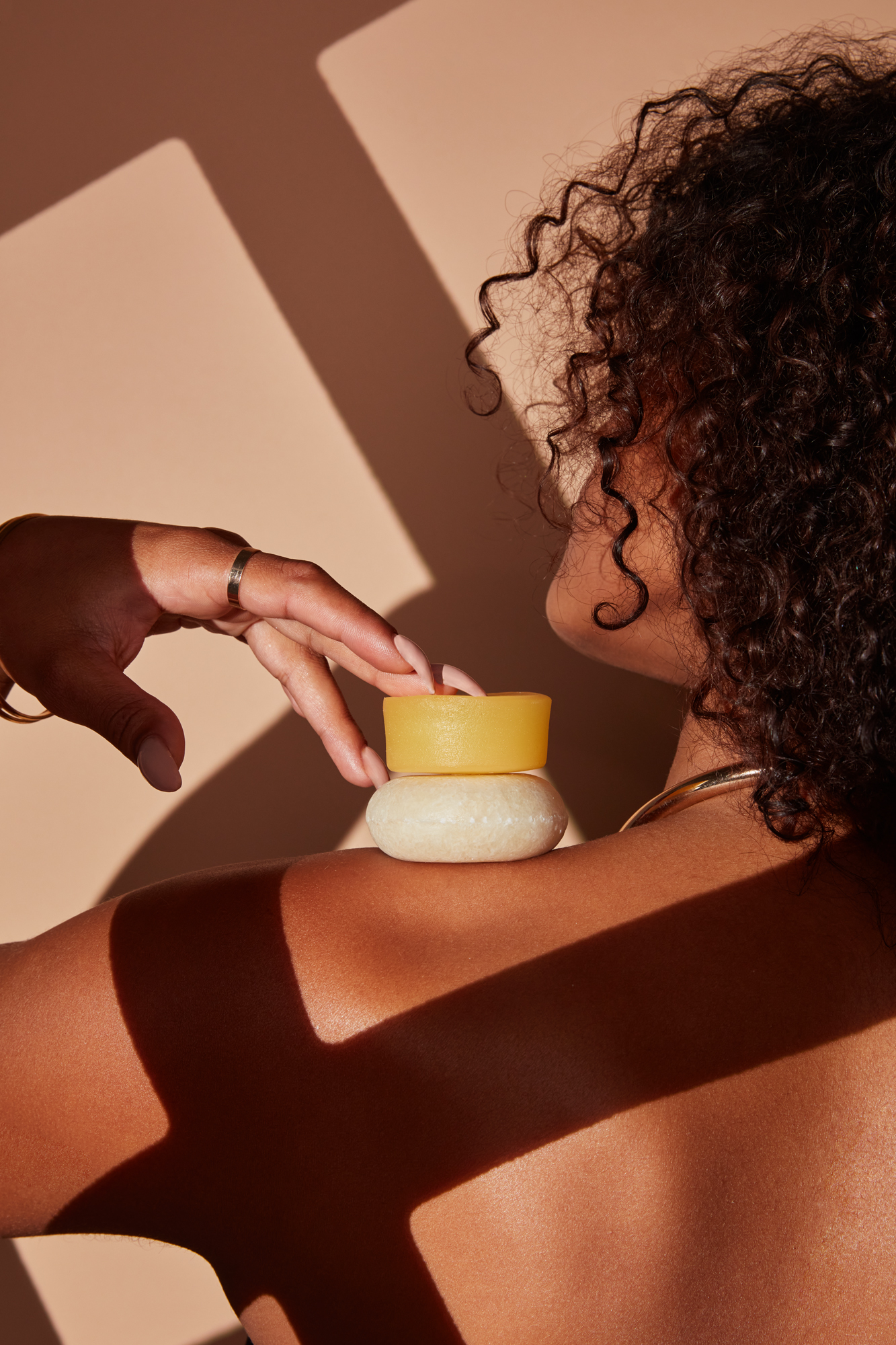
“To be honest, I think that we could have probably stopped a few iterations before, if we didn’t want, like, the best,” Karandat says. “For most women, you want to love your hair care, you don’t just want to like it. Because when you like it, then you’re constantly looking for something else.”
Both are certain that the ingredients are what set their products apart from other humdrum shampoo and conditioner bars. Coconut-derived cleaning agents, rather than petroleum-based surfactants, create lather. Hydrolyzed rice protein gives hair more volume. Then there’s a “whole host of oils and butters, which are super nourishing for your hair and your scalp,” Karandat says. “Those oils don’t just sit on the hair. They are actually absorbed into the hair shaft, making it stronger and healthier.”
The pièce de résistance? Mushroom extracts. “There isn’t another shampoo and conditioner that has mushrooms in it,” Monahan points out. “The fact that chaga mushroom, for example, which is in our oily-fine shampoo and conditioner bars, has been researched, proven to regrow hair.” They also have bars to suit a spectrum of hair types and textures, from dry and curly to oily and fine.
The package the bars arrive in is just as important. The pair is on a mission to keep 50 million plastic containers from entering the waste cycle by 2030. “It sounds really big, but on a yearly basis in North America, we send almost three billion shampoo and conditioner bottles to landfill,” Karandat says. “Every single year.”
“You can run a sustainable business and be profitable and have it be led by women.”
An automated counter on the Good Juju website confirms they’re well on their way, with more than 425,000 plastic bottles diverted since 2021—and counting. But that’s not their only goal. “Changing people’s habits, changing their daily routines,” Karandat says. “We really wanted to have a bigger impact and inspire people.”
And it isn’t just the efficacy of shampoo bars that the duo is taking into the future. “We wanted to inspire a different way of doing business,” she says. “There’s a lot of amazing women founders out there, but there’s still not nearly as many as there are men. We’re getting a very disproportionate amount of investment funds.”
“Two per cent, I think,” Monahan adds, interrupting. Only 2.3 per cent of venture capital funds go to startups led by women, which comprise 17.5 per cent of all startups.
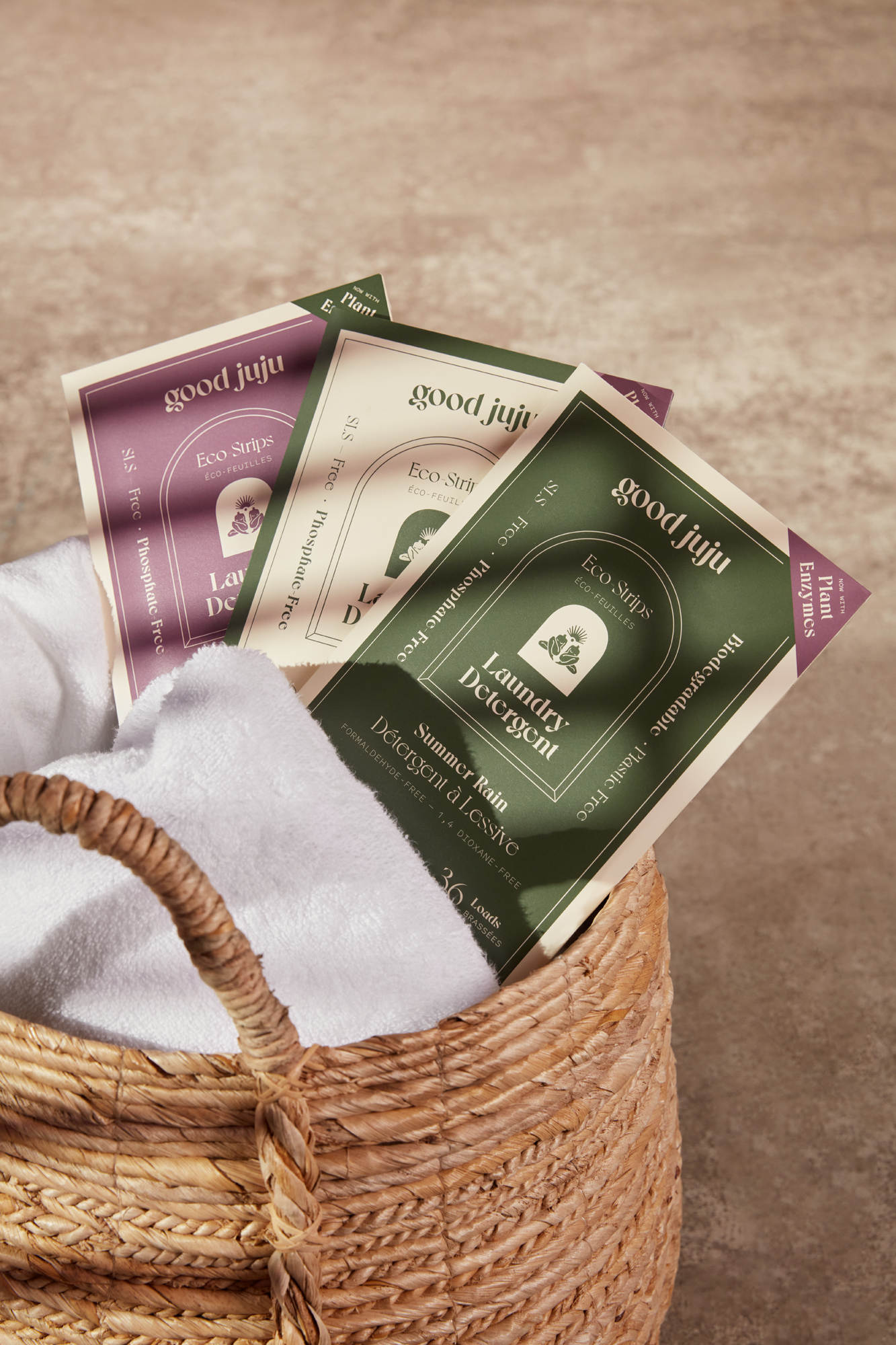
Karandat doesn’t skip a beat. “There’s certain things that are still at a disadvantage when it comes to women in business. When we started this, we wanted to make an impact and show that there is a different way to do business,” she says. “You can run a sustainable business and be profitable and have it be led by women.”
Laughter bubbles when I ask whether they have advice for anyone new to using a shampoo bar. “Just try it. It’s easier to use than you think,” Karandat says. “We know that a lot of people are super intimidated by that. But once you try it, you will love it.” Monahan nods in agreement.
From something old, something not necessarily new—but improved. “When you’re in an industry that has a lot of small- to medium-sized businesses, there’s a lot of innovation,”Karandat says. “We wanted products that we love, so we had to create them.”
Read more stories about beauty.
